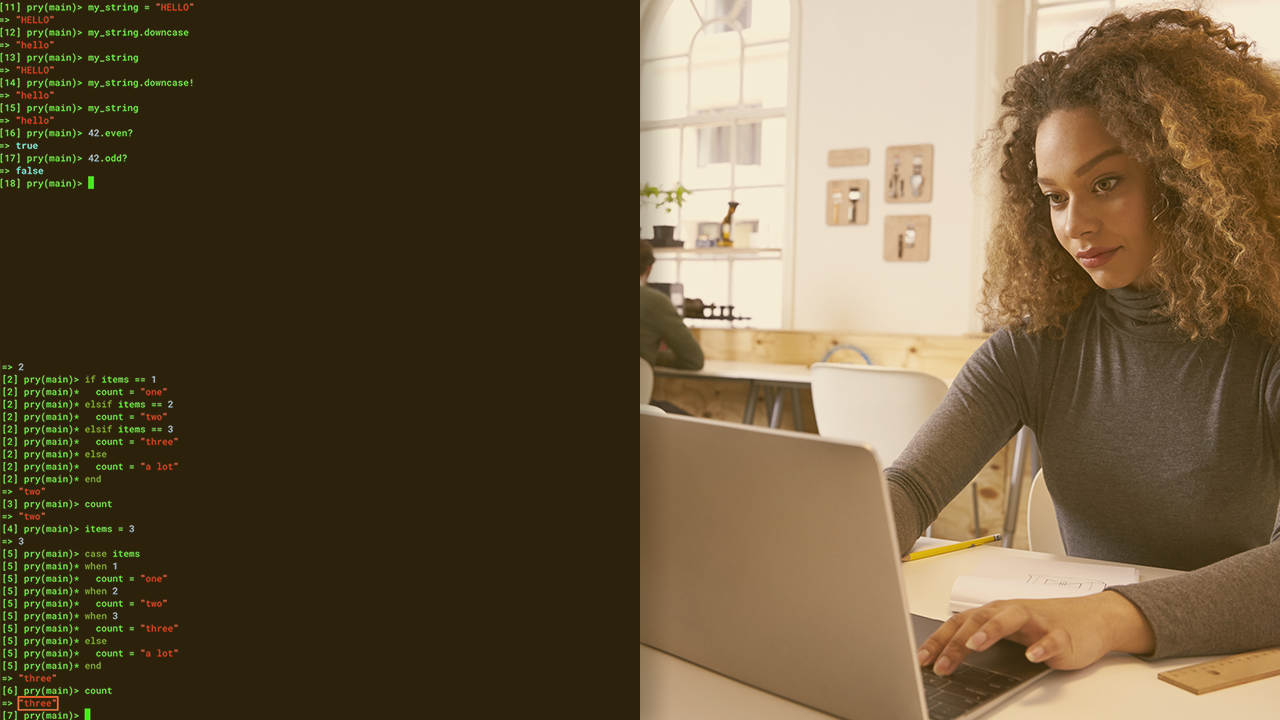- Course
Ruby 2: Getting Started
This course will teach you the basics of Ruby with a pragmatic example. From basic types to control flow, you'll learn enough Ruby to write short programs.

- Course
Ruby 2: Getting Started
This course will teach you the basics of Ruby with a pragmatic example. From basic types to control flow, you'll learn enough Ruby to write short programs.
Get started today
Access this course and other top-rated tech content with one of our business plans.
Try this course for free
Access this course and other top-rated tech content with one of our individual plans.
This course is included in the libraries shown below:
- Core Tech
What you'll learn
Ruby is a language that prides itself on doing things its own way. In this course, Ruby 2: Getting Started, you’ll learn the basics of the Ruby programming language. First, you'll write Ruby code that solves a concrete programming problem. Next, you’ll see how even simple constructs like conditionals and loops have their own original spin in Ruby. Then, you’ll get to use the most common Ruby data types, including arrays and hashes. Finally, you’ll learn how to deal with programming errors and exceptions. When you're finished with this course, you’ll know how to write a simple Ruby program, and you’ll be on solid ground to delve into more specific aspects of this brilliant language.

